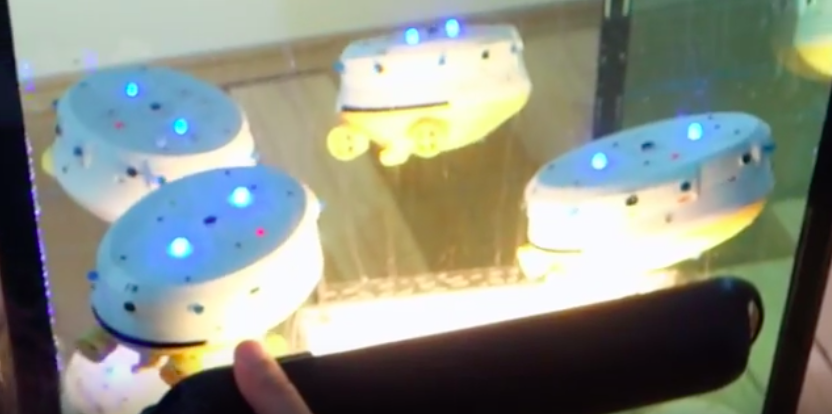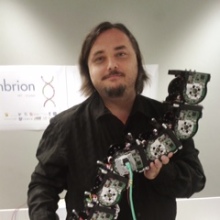
Robohub.org
The Year of CoCoRo Video #40/52: Adaptive layers water column

The EU-funded Collective Cognitive Robotics (CoCoRo) project has built a swarm of 41 autonomous underwater vehicles (AVs) that show collective cognition. Throughout 2015 – The Year of CooRo – we’ll be uploading a new weekly video detailing the latest stage in its development. This week’s video shows the mechanisms used in the “social inhibition algorithm” in more detail and our experiments with swarms of robots in a vertical aquarium.
Last week we introduced the “social inhibition algorithm” we developed for our CoCoRo robot swarm. This is an algorithm for regulating division of labour, inspired by the self-organized regulation of physiological age in honeybee colonies.
The week the robots regulate an internal variable, X, by interacting with other robots, and split the swarm into three cohorts, allocating themselves to different depths in the aquarium. We added and removed robots. Their regulation of the internal variable leads to an automatic rearrangement of the swarm, so that there are always an equal number of robots at each depth.
We also added sources of interest: special robots or external lights, at different depth layers, and the swarm rearranges in a way that more robots are attracted to particularly interesting depths.
The algorithm shown here is promising due to its ability to automatically rearrange the robots to meet different demands, based only on local interactions. This makes it attractive for large scale applications where several sub-groups of the swarm need to act at different depth levels performing different tasks.
tags: AUV, c-Research-Innovation, CoCoRo, EU robotics industry news, UAV, underwater video





